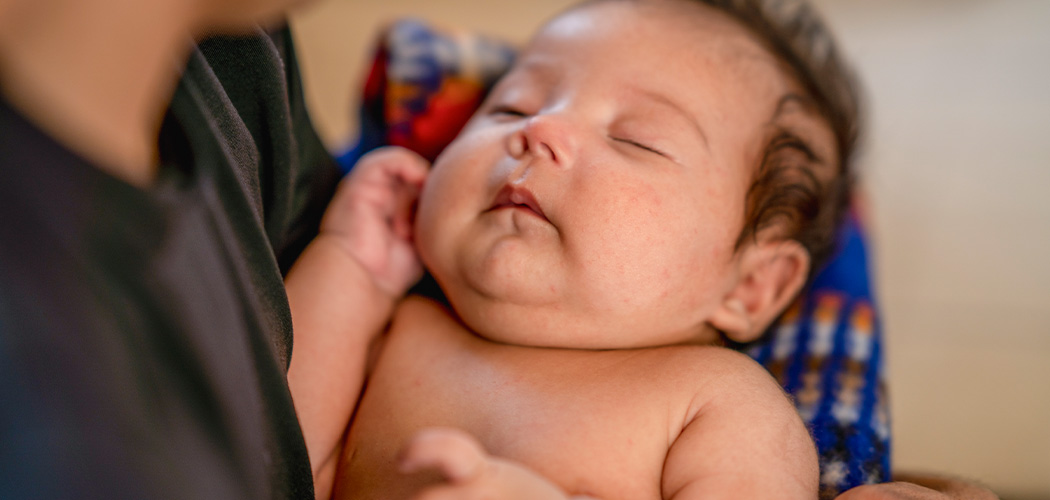An international, pan-Indigenous, and cross-cultural research team has examined Indigenous women’s dissatisfaction with birthing experiences across both the Northern and Southern Hemispheres.
A recently published scoping review includes data from 1,437 women, 36 Elders, 14 fathers and family members, and 91 healthcare professionals, highlighting widespread dissatisfaction with birthing in mainstream maternity hospitals in Australia, Aotearoa (New Zealand), Canada, the US, Kalaallit Nunaat (Greenland), and Sápmi (Norway).
The findings reveal a critical need for culturally safe, trauma-informed care, inclusive communication, active decision-making, and greater integration of Indigenous perspectives in maternity care. The research also advocates for the involvement of Indigenous birth support workers and the inclusion of Birthing on Country models of care where appropriate.
Despite the safety benefits of medicalised births, the evacuation of Indigenous women for childbirth causes cultural, geographic, and social disconnection. This disconnection leads to distress and contributes to ongoing dissatisfaction with maternity experiences. The review underscores the urgent need for enhanced cultural safety education, improved communication, and the integration of cultural practices into maternity care, with Indigenous birth support workers playing an essential role.
Birth outcomes for Aboriginal and Torres Strait Islander women continue to be significantly worse than for non-Indigenous populations, despite advancements in maternity care. This scoping review highlights systemic inequities and cultural safety concerns in mainstream maternity hospitals, exacerbated by the medicalisation and evacuation of Indigenous women for childbirth. A consistent preference emerged for birthing within Indigenous communities, where women feel connected to their cultural practices and supported by family. Many women reported feelings of isolation and disconnection when relocated for childbirth, particularly in rural or remote areas. The lack of culturally safe care erodes trust in healthcare providers, contributing to higher dissatisfaction and poorer health outcomes.
A key finding is the strong preference for the Birthing on Country model, which integrates traditional practices, supports holistic wellbeing, and provides continuity of care – especially when midwifery teams include cultural support and Indigenous birth workers. However, mainstream maternity services often fall short of meeting these needs, revealing a significant gap in cultural understanding and safety within the healthcare system.
The research stresses the need for cultural safety training for healthcare professionals. Effective and inclusive communication, and active decision-making are essential for improving the birth experience for Indigenous women. Such education enables healthcare providers to challenge cultural stereotypes, build trust, and enhance clinical care, leading to better maternal health outcomes.
This research calls for a transformative approach to maternity care that prioritises Indigenous women’s voices and cultural needs. By integrating traditional knowledge and practices into mainstream care, maternity services can become both medically safe and culturally empowering for Aboriginal and Torres Strait Islander women. Healthcare professionals must create inclusive, respectful environments where all women, especially those from marginalised communities, feel heard, valued, and supported in their maternity care.
Addressing these gaps in care and advocating for systemic change is not just a professional responsibility – it’s a moral imperative. Ensuring that Indigenous women have access to culturally safe and responsive care is critical to closing the health equity gap and improving outcomes for mothers and their babies across the globe.
You can read the full review via this link: https://www.frontiersin.org/journals/public-health/articles/10.3389/fpubh.2025.1495197/full
Published research reference
Sivertsen N, Johnson T, Mehus G, Ness TM, & McGill J. 2025. What is known about Indigenous women’s dissatisfaction of birthing experiences in mainstream maternity hospitals in Australia, Aotearoa, Canada, US, Kalaallit Nunaat and Sápmi? A systematic scoping review. Frontiers in Public Health, 13. https://doi.org/10.3389/fpubh.2025.1495197.
Authors:
Nina Sivertsen RN, BNg (Hons), Grad Cert Ed (Higher Ed), PhD (Ng/Midwif), MACN is Associate Professor at Flinders University, South Australia
Tahlia Johnson RM, BMidwif, BHlthSc(Hons) isLecturer (Teaching and Research) at Flinders University, South Australia
Grete Mehus, Faculty of Health Sciences, UiT Arctic University of Norway, Tromsø, Norway
Tove M Ness, Centre for Sámi and Indigenous Studies, Faculty of Education and Art, Nord University, Levanger, Norway
Susan Smith RN/RM, Grad Cert Health (CAFHN), Master of Midwifery, PhD, Academic and Research at Flinders University, South Australia








